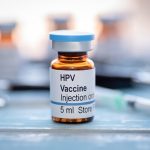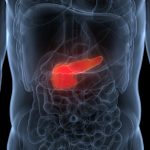-
Delaying Treatment Resistance
Adding a CDK 4/6 inhibitor extends progression-free survival for people with metastatic HR-positive, HER2-positive breast cancer.
by Thomas Celona
-
2024: The Year in Cancer News
The Cancer Today editors share the most impactful reporting on cancer research from 2024.
by Cancer Today staff
-
Cancer Today Editors’ Picks: 2024
Our favorite Cancer Today stories from 2024, as picked by the editors.
-
Rethinking the Role of Radiation
Chest radiation may not be necessary for people with intermediate-risk breast cancer.
by Thomas Celona
-
December 13: The Week in Cancer News
Active surveillance of DCIS patients may be an alternative to treatment, and guidelines add self-test for HPV.
by Kevin McLaughlin
-
De-escalating Treatment for DCIS
Research finds certain people with low-risk DCIS may be able to forgo surgery or radiation.
by Thomas Celona
-
December 6: The Week in Cancer News
HPV vaccine credited for decrease in cervical cancer deaths among young women, and new technology extends survival in locally advanced pancreatic cancer.
by Thomas Celona
-
Study Highlights Challenges in Pancreatic Cancer Staging
Most pancreatic ductal adenocarcinoma cases initially considered to be stage I are changed to a higher stage after surgery.
by Taneia Surles
-
November 22: The Week in Cancer News
Pancreatic cancer surge in younger people has not led to a rise in deaths, and researchers will study long-term survivors to better understand cancer responses.
by Eric Fitzsimmons
-
Understanding How High and Low Testosterone Levels Can Treat Prostate Cancer
Using high-dose testosterone after prostate cancer stops responding to androgen deprivation therapy can stop tumor growth.
by Sandra Gordon
Cancer Talk
Lessons From 20 Years Living With Cancer
Multiple myeloma survivor Jonathan Gluck reflects on uncertainty, and the scientific progress that has kept him living with cancer for more than two decades.
by Eric Fitzsimmons
The Enduring Importance of Cancer Disparities ResearchOpening session from AACR conference highlights how perseverance and adversity have informed cancer disparities research over the years.
by Eric Fitzsimmons
Most Cancer Survivors Don’t Meet Healthy Diet GoalsDespite research linking fruits and vegetables to cancer survival, many people do not change their eating habits after diagnosis.
by Darlene Dobkowski
Many People Don’t Get Colonoscopy After Receiving Abnormal Blood TestsAbout half of people who receive abnormal results from colorectal cancer screening tests don’t follow up with a colonoscopy.
by Laura Gesualdi Gilmore














